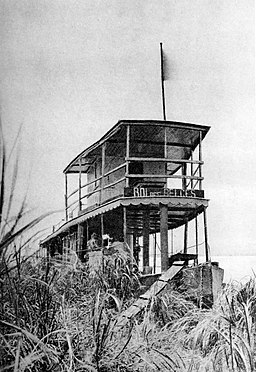Imperialism and Identity in 'Heart of Darkness'
 |
| The word "ivory" rang in the air, was whispered, was sighed. You would think they were praying to it. |
The book begins on the river Thames. Marlow, the narrator, suddenly recalls another river, a river that took him through the ivory-trading business in Africa. Marlow is just the steamboat captain, but he gets caught up in the intrigue of the ivory traders, particularly the famous Mr Kurtz. But who or what is Kurtz, and why is he adored by so many--or feared?
Imperialism
The "heart of darkness" could be aptly attributed to the Europeans' invasion of Africa, where they exploit (and virtually enslave) the local people in order to reap ivory/profits.
Pop, would go one of the six-inch guns; a small flame would dart and vanish, a little white smoke would disappear, a tiny projectile would give a feeble screech - and nothing happened. Nothing could happen. There was a touch of insanity in the proceeding, a sense of lugubrious drollery in the sight; and it was not dissipated by somebody on board assuring me earnestly there was a camp of natives - he called them enemies! hidden out of sight somewhere.Creeping along the river through the jungle, Marlow alone finds another perspective:
It was unearthly, and the men were—No, they were not inhuman. Well, you know, that was the worst of it—this suspicion of their not being inhuman. It would come slowly to one. They howled and leaped, and spun, and made horrid faces; but what thrilled you was just the thought of their humanity—like yours—the thought of your remote kinship with this wild and passionate uproar.Some view Heart of Darkness as a racist book, but I think it is exactly the opposite. Conrad was writing for an audience where racism was accepted and openly practiced, yet again and again, Marlow--a character that would otherwise be typical--is seen to be of a different mindset, one who recognizes the connection between all people and essentially asserts that we are all equal. His overall respect for the African people increases, while his opinion of his fellow white men (whom he dubs "the pilgrims") becomes increasingly disgusted and sardonic. Kurtz gains Marlow's fascination, but that, too, turns into horror.
Identity
The Manager of the Central Station has no respect for Marlow, but a great amount of respect for Kurtz, resulting naturally in the opposite reaction from Marlow. A few pages later, Marlow is defending Kurtz, whom he has not even yet met, defending him as if he were defending "inhabitants in the planet Mars." He wants to believe in him. Curiosity and expectation have given Marlow (and the reader) a vague, apprehensive picture of Kurtz, but still he remains a mystery, attractive by his name, enigma, and energy alone.
Finally making some progress down the river, Marlow contemplates a future verbal showdown between him and Kurtz, ending in "What did it matter what any one knew or ignored? What did it matter who was manager?" Nothing has changed, but psychologically, steamboat captain Marlow has progressed to the position of a central character, zero to not-quite-hero--filling in, as it were, the emptiness left by Kurtz's absence. Maybe the real question is: who is Marlow? How/why does he become a key figure in the story?
Marlow, at any rate, is horrified by Kurtz's collection of heads outside his cabin. The closer Marlow comes to Kurtz's cabin, and symbolically Kurtz himself, the more accurately Marlow sees who Kurtz is beneath his fame. Even those who had backed Kurtz up before are not as eager to do so now, though they are also unwilling to leave his ivory behind them. Kurtz is a centralized, magnified look at brutal imperialism, and Marlow doesn't like what he sees.
Yet Marlow is the only person in the world who knows him, and it is Kurtz's "magnificent eloquence" and fighting spirit that make Marlow remain inwardly loyal to his memory, however horrible a memory. Marlow ends up where he began, with an understanding, an inexplicable empathy--rather than sympathy--towards Kurtz. And Kurtz's Pyrrhic victory.
The vision seemed to enter the house with me—the stretcher, the phantom–bearers, the wild crowd of obedient worshippers, the gloom of the forests, the glitter of the reach between the murky bends, the beat of the drum, regular and muffled like the beating of a heart—the heart of a conquering darkness. It was a moment of triumph for the wilderness, an invading and vengeful rush which, it seemed to me, I would have to keep back alone for the salvation of another soul.The wilderness being sin, and "another soul" being Kurtz's girlfriend, to whom Marlow must convey his parting words. He has not the ability to tell her that Kurtz was a fiend, that he (as I hypothesize) took advantage of another woman for the sake of ivory, that he lived in "The horror! the horror!"
Rather than going through a character arc, Marlow comes full circle, to live again without the presence of Kurtz hovering over him. Marlow comes home. Could it be, then, that Marlow and Kurtz are one and the same character? That Kurtz personifies everything Marlow fears, despises, and runs from in himself? For only Marlow really knew Kurtz, to his own grief.
You know I hate, detest, and can’t bear a lie, not because I am straighter than the rest of us, but simply because it appalls me. There is a taint of death, a flavour of mortality in lies—which is exactly what I hate and detest in the world—what I want to forget.Yet Marlow ultimately chooses to tell a lie, rather than let anyone else in the world know Kurtz, so terrible is Kurtz's "heart of darkness".



Comments
"Heart of Darkness" helped me overcome my fear of Conrad. For the book is layered, as you've said.
Very, very interesting and so well written (your post)!